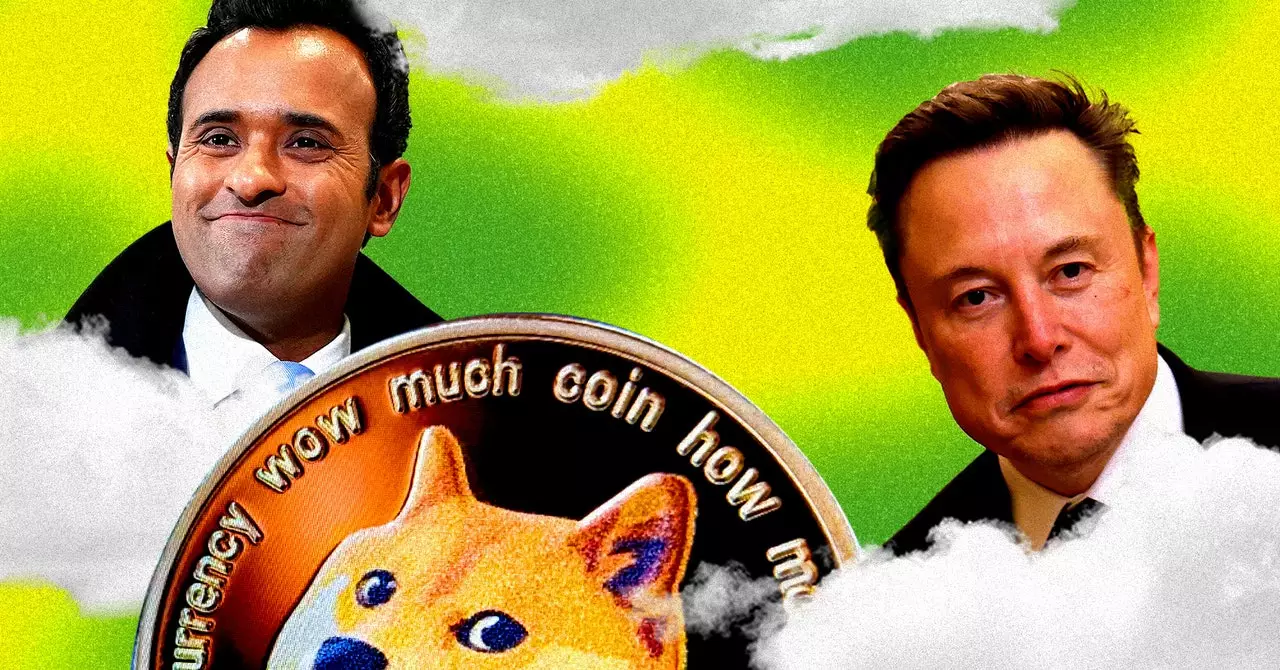In the ever-evolving landscape of digital finance and cryptocurrency, a curious phenomenon known as the “broligarchy” has emerged. This term, coined among tech enthusiasts and financial commentators, represents a group of individuals—typically influential men—who dominate discussions around technology and finance, often relaying ideas that blend humor, irony, and genuine insight. At the heart of this conversation are meme coins, stray offspring of internet culture that have captivated a broad audience, contributing to an interesting dynamic in today’s technological dialogue.
Memes, at their core, serve as a humorous narrative that reflects societal norms. When applied to cryptocurrency, they take on a life of their own. The transformation from playful satire to genuine funding mechanisms illustrates the paradox at the heart of digital currency, where investment is often guided by whimsy rather than traditional economic principles. This interplay between humor and finance has led to significant discussions, notably regarding Dogecoin, a quintessential example of a meme coin that has skyrocketed in popularity with both fervent supporters and skeptical critics.
The Significance of Dogecoin
At first glance, Dogecoin seems like a lighthearted joke manifested in digital form. Born from the famous Shiba Inu meme, it has garnered a following that belies its inception as a parody of the cryptocurrency frenzy. Influential figures, most notably Elon Musk, have propelled its visibility, leading to considerable fluctuations in its value. This phenomenon raises essential questions surrounding the motivations driving individuals to invest in such currencies. Is it genuine belief in the currency’s potential, or mere participation in a social spectacle?
The broligarchy often fuels these discussions, championing meme coins as legitimate investments while couching the conversation in playful banter and irony. This raises critical issues about accessibility and financial literacy. If discussions surrounding finances often rely on humor and meme culture, are we demystifying complex economic concepts or obfuscating genuine information in a cloud of irony?
In a strange twist of fate, the term “DOGE” has recently been co-opted not just to denote the meme coin itself, but rebranded as the “Department of Government Efficiency.” The juxtaposition of a lighthearted meme and a governmental initiative illustrates a curious marriage of culture and bureaucracy. The founders of this initiative suggest that by applying principles from the world of cryptocurrency, they can rejuvenate and streamline governmental operations. But does the existence of bureaucratic meme culture imply genuine reform, or is it merely a fleshy body draped in an amusing disguise?
This initiative aims to leverage the very ethos that fueled cryptocurrency: community participation, transparency, and engagement. However, one must critically examine whether the motivations behind government involvement in such a concept are truly aimed at fostering efficiency or instead serve as a facade for broader political ambitions that prioritize marketing over tangible reform.
The ramifications of meme coins like Dogecoin, and broader brologarchy narratives extend beyond mere financial implications. They are indicative of shifting societal values around investment, entrepreneurship, and the role of humor in serious discussions. As engagement with these ideas continues in the public sphere, what lies ahead for cryptocurrency and the individuals who pioneer it?
Will we see a continued blending of humor with finance, or will the seriousness of economic decisions eventually reign supreme? Furthermore, in the context of financial advising and education, how can we create a foundation that empowers individuals without overwhelming them under the weight of irony and meme culture? The future of these discussions remains to be seen.
As we navigate through the intersecting worlds of humor, finance, and technology, we must strive for critical engagement to discern genuine advancements from empty rhetoric cloaked in playful irony. The broligarchy may lead the discussions surrounding meme coins, but it is essential to ground them in accountable practices and informed analysis. The digital financial landscape may be graced with humor, yet the underlying principles of economic responsibility must not be forgotten.

